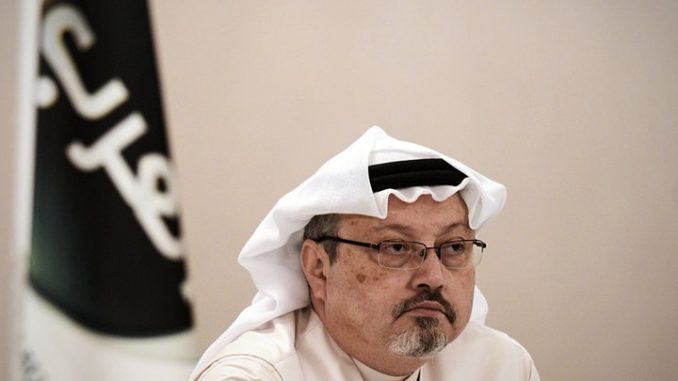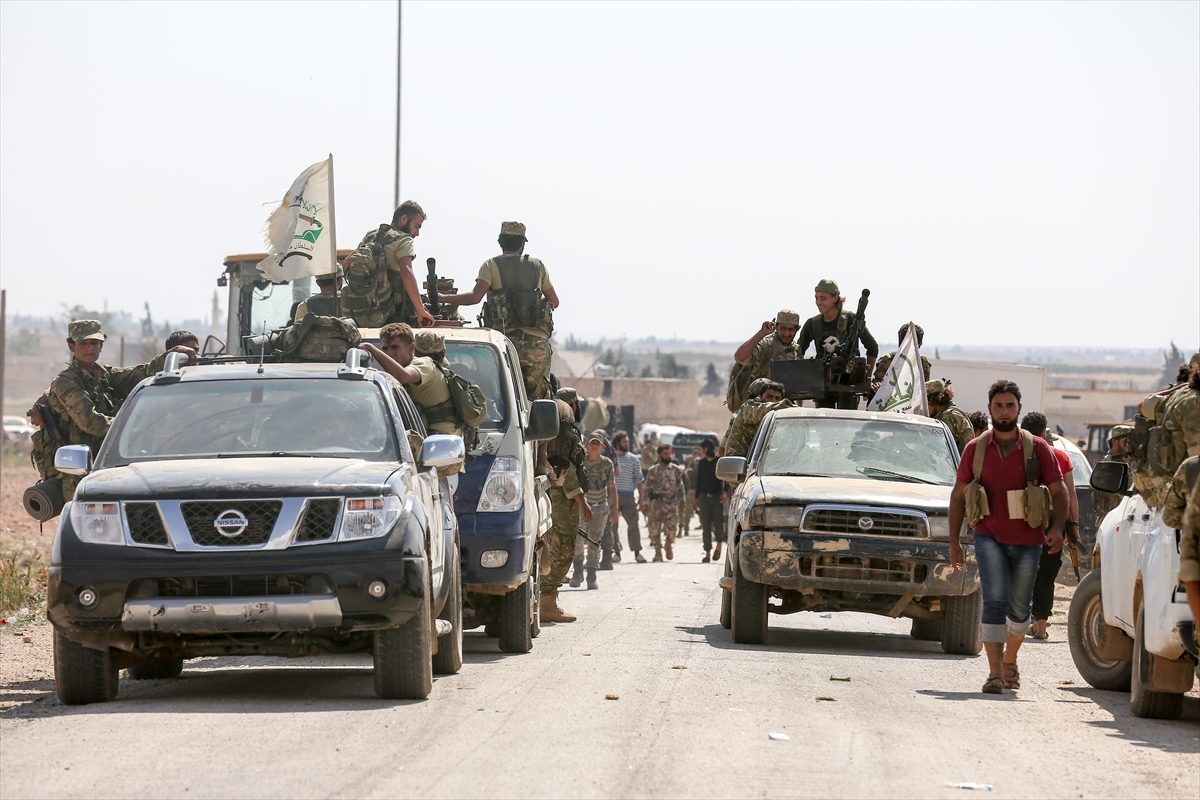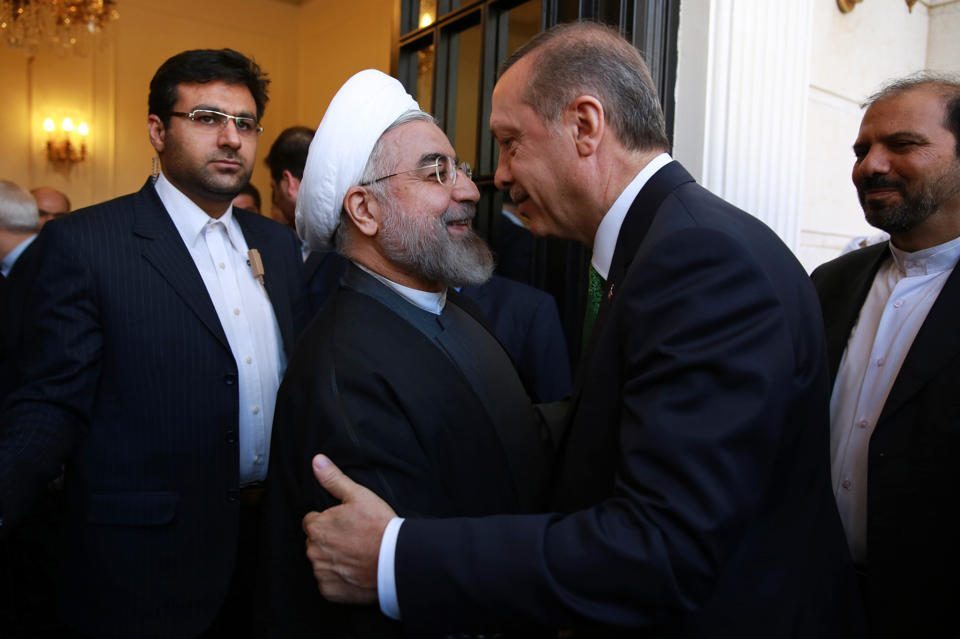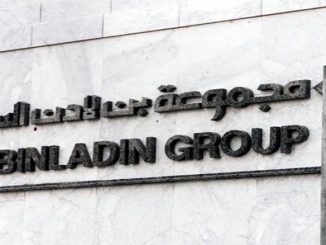
A joint Turkish-Saudi team will investigate the disappearance of Saudi journalist Jamal Khashoggi upon the kingdom’s request, Presidential Aide Ibrahim Kalın said late Thursday
Kalın told Anadolu Agency: “Within the framework of a close cooperation between Turkey and the Kingdom of Saudi Arabia and upon the suggestion of the Kingdom, a joint working team between Turkey and Saudi Arabia will be formed to investigate the case of Jamal in all its aspects.”
Later in the same day, State Department Spokesperson Heather Nauert said that the United States is “content with Turkey-Saudi agreement to form joint working group to investigate Khashoggi case.”
Khashoggi, journalist and columnist for The Washington Post, has been missing since he entered the consulate in Istanbul on Oct. 2. Turkish authorities suspect he was killed. Saudi Arabia denies any involvement in his disappearance.
On Tuesday, Turkish Foreign Ministry spokesman Hami Aksoy said Saudi authorities notified Ankara that they were “open to cooperation” and would allow the consulate building to be searched.
On Monday, President Recep Tayyip Erdoğan urged the Saudi Consulate to prove whether or not Khashoggi exited the building after entering, saying the consulate officials “can’t get away with (simply) saying ‘he left the building’.”
Turkish police investigating the case said in a statement Saturday that 15 Saudis, including several officials, arrived in Istanbul on two planes and entered the consulate while Khashoggi was inside. On Tuesday, footage and identities of the “assassination” squad were made public.
Khashoggi had been living in self-imposed exile in the U.S. since last year.
Trump says US investigators working with Saudi, Turkey on Khashoggi case
U.S. President Donald Trump said Thursday that he was looking into the disappearance of Saudi journalist Jamal Khashoggi very closely and he had US investigators involved in the case.
U.S. President Donald Trump said Thursday that Washington was working with Ankara and Riyadh on the investigation, though Turkish officials denied his claim that U.S. investigators were operating inside Turkey.
In a Fox News interview, Trump said U.S. investigators were working with both Ankara and Riyadh to probe the suspicious disappearance in Turkey of Saudi journalist Jamal Khashoggi.
“We can’t let it happen. And we’re being very tough and we have investigators over there and we’re working with Turkey and frankly we’re working with Saudi Arabia,” Trump told “Fox and Friends.”
However, Trump’s comments about having U.S. investigators in Turkey and working with Ankara on the Khashoggi case were denied by Turkish diplomatic sources and the claims were called “untrue.”
The U.S. president said that Khashoggi “went in and it doesn’t look like he came out” from the consulate.
“I have to find out what happened,” Trump said, when asked if U.S.-Saudi relations would be jeopardized by the disappearance of Khashoggi, a U.S. resident who Turkish officials suspect was murdered after entering the Saudi consulate in Istanbul.
“We’re probably getting closer than you might think,” he added.
When asked about a Post report that U.S. intelligence intercepts outlined a Saudi plan to detain Khashoggi Trump said “It would be a very sad thing and we will probably know in the very short future.”
Later on Thursday, Trump told reporters at the White House that he saw no reason to block Saudi Arabian investments in the United States despite the Khashoggi incident, saying the Gulf nation would then just move its money into Russia and China.
Trump also said the United States was expecting a report soon on Khashoggi but gave no other details
Earlier Wednesday, Republican Sen. Bob Corker, who as chairman of the Senate Foreign Relations Committee has reviewed U.S. intelligence on the case, said it was likely that Khashoggi was killed the day he walked into the consulate. Whatever took place, Corker said, “There was Saudi involvement” and “everything points to them.”
Corker told reporters at the U.S. Capitol later in the day, “If it turns out to be what we all think it is today but don’t know, there will have to be significant sanctions placed at the highest levels.”
More than 20 Republican and Democratic senators instructed Trump to order an investigation into Khashoggi’s disappearance under legislation that authorizes imposition of sanctions for perpetrators of extrajudicial killings, torture or other gross human rights violations.
Jamal Khashoggi: The profile of a Saudi elite turned Riyadh critic
From rubbing shoulders with royalty to having a billionaire arms dealer uncle, nothing about the life and disappearance of Washington Post columnist Jamal Khashoggi, seems ordinary.
Khashoggi has made headlines across the globe after reports surfaced about the Turkish police’s suspicions that the journalist was murdered in the kingdom’s diplomatic mission in Istanbul on Oct. 2.
Known for being a vocal critic of Riyadh, Khashoggi used to be a loyalist before Prince Mohammed bin Salman became the crown prince in 2017.
His colleagues and friends were terrified of the implications after Khashoggi’s fiancée Hatice Cengiz first broke the news that the dissident writer hadn’t shown up since he entered the consulate that day as the kingdom is known for having a “no holds barred” attitude towards its critics. In 2017, another reporter, Fayez bin Damakh, also disappeared, and hasn’t been heard from since.
Born into a select few
Jamal Khashoggi was born in 1958 to a well-connected family. His grandfather was Mohammed Khaled Khashoggi, King Abdulaziz Al Saud’s personal doctor. Jamal is also the nephew of late billionaire Adnan Khashoggi.
After graduating from Indiana State University in 1982, Khashoggi quickly launched a career in journalism.
In 1992 he became the editor-in-chief of Al Madina, and in 1999 Khashoggi rose to the rank of deputy editor-in-chief of Arab News, the biggest English newspaper in Saudi Arabia.
Azzam Tamimi, Khashoggi’s friend of 25 years, said the missing journalist used to be a part of the established political order and had close ties with the Saud family.
Tamimi said Khashoggi attended diplomatic meetings on behalf of the Saudi government.
For example, Tamimi says Riyadh chose to send Khashoggi to a high-profile meeting between western leaders with Palestine’s Hamas in Beirut.
“He was among the Saudi elite. An elite group that wants to see a real reform in Saudi Arabia without a regime change. Prince Salman sees this elite group as a threat to himself and he is going after them one by one,” Tamim said.
Nephew of a billionaire arms dealer
Jamal is the nephew of late Adnan Khashoggi, an infamous arms dealer who used to be a key player in the Middle East and is said to have close relations with many prominent figures.
In the 1960’s, Adnan made a name for himself by brokering arms deals between Riyadh and Washington.
Reportedly also having close ties with late Israeli PM Ariel Sharon, Adnan became a prominent figure in Middle East politics.
Adnan was implicated in the Iran-Contra affair and suspected of being the middleman who brokered back-door arms sales to embargoed Iran during the Reagan administration.
Adnan’s net worth was estimated to have reached $4 billion at one point, and his extravagant lifestyle with super-yachts and private airplanes turned him into a famous figure before his passing in June 2017.
Cousin of Princess Diana’s lover
While Adnan made himself a name with his lavish lifestyle, his other nephew and Jamal’s cousin, Dodi Fayed, became famous for his relationship with the U.K.’s Princess Diana.
Serving as an attaché at the United Arab Emirates Embassy in London, Fayed also lived a luxurious life.
Fayed, who used to be a film producer, also owned Britain’s largest and famed department store Harrods.
Romantically involved with possibly the world’s most beloved royalty Princess Diana, Fayed died along with her in a tragic accident in 1997.
Opposed by one royalty, backed by another
In 2015, Prince Alwaleed bin Talal launched a TV station called Al-Arab News and appointed Jamal, his close confidant, as its editor-in-chief.
However, the TV station aired for less than 24 hours before shutting down, citing technical difficulties. Rumors started to circulate that the Saudi government pressured the station into closure after it broadcasted a Bahraini politician from opposition.
According to Jamal’s friends, who spoke to BBC Turkey and wished to remain anonymous, Jamal’s problems began shortly after the Al-Arab News incident.
Jamal was barred from speaking to any news outlets and could not find any work during this time, and chose to self-exile himself to the U.S.
In 2017, Prince Talal, along with prominent Saudi Arabian princes, government ministers and business people became a subject of a corruption investigation spearheaded by his cousin, Prince Salman.
Prince Talal was released after three months in jail.
The States and the Post
After arriving in the U.S., Khashoggi began writing a column for the Washington Post, voicing his support for a reform in the kingdom.
Khashoggi openly and continuously criticized the Saudi government for its involvement in the Yemen war. He also lashed out at the royal family, accusing them of misusing the nation’s wealth and making politically motivated arrests.
Hoping to avoid being labeled as opposition, Jamal’s coworkers and friends say he always worded his critical pieces carefully.
“Jamal had reservations. He especially criticized [Saudi] foreign policies. He believed the war in Yemen would amount to nothing and thought having a fall out with Qatar was not in Saudi Arabia’s best interest. But he never positioned himself as ‘opposition, someone who is against the Saud family’,” BBC Arabic’s Ahmed Zaki, who knows Jamal personally, said.
As Jamal’s friends, colleagues and people around the world wonder what happened to him while hoping for the best, there seems to be more to his disappearance than meets the eye.



